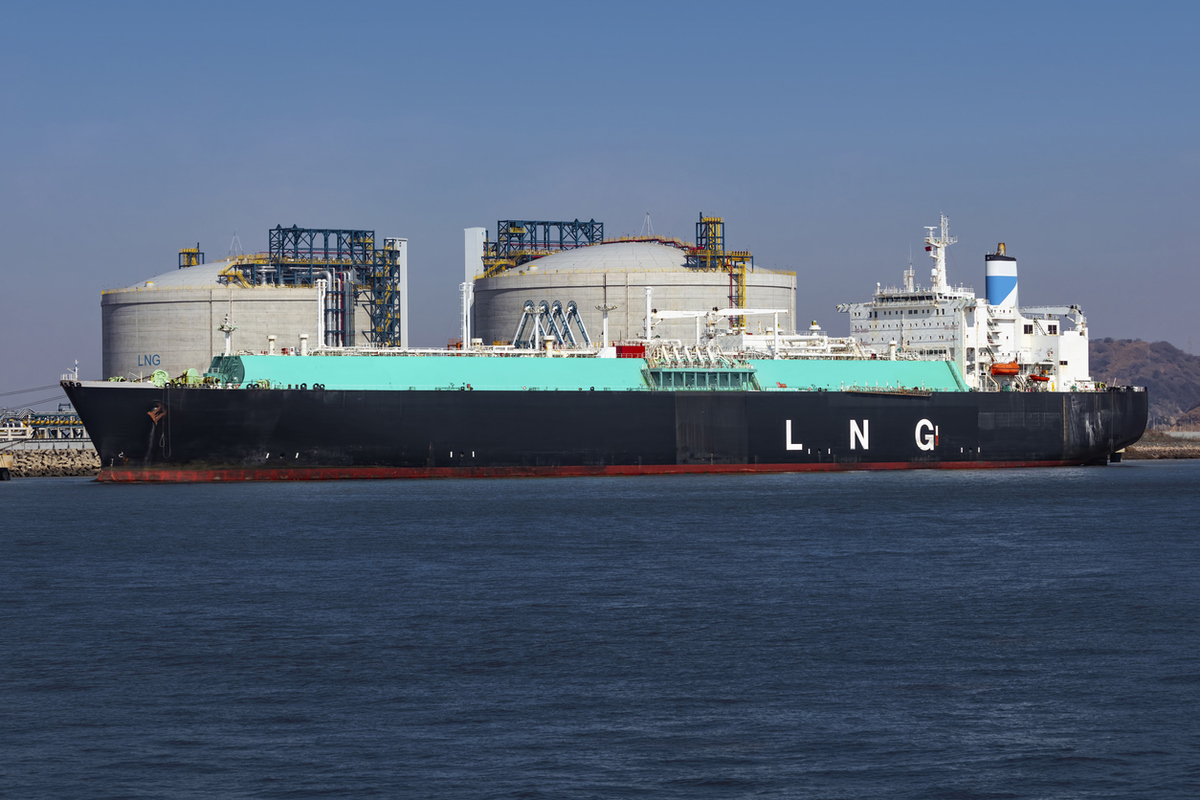Countdown to MEPC 81: RINA calls for regulatory framework to curb methane slip
The UK-based Royal Institute of Naval Architects (RINA) has stated that shipping methane emissions are expected to rise as more ships burn LNG.
 PHOTO: A large LNG carrier unloads its cargo at the LNG terminal. Getty Images
PHOTO: A large LNG carrier unloads its cargo at the LNG terminal. Getty Images
RINA has presented a model forecasting methane emissions resulting from the use of LNG as a marine fuel up to 2050.
This model is based on a study conducted by the Mærsk Mc-Kinney Møller Centre for Zero Carbon Shipping (MMMCZCS), with RINA acting as a knowledge partner, it stated in its submission to the IMO ahead of the 81st Marine Environment Protection Committee (MEPC 81) meeting next month.
One of the key findings of the study is that “methane emissions from shipping are projected to increase due to growth of the LNG-fuelled fleet, even with the advent of renewable methane as a fuel.”
Methane slip from LNG ships happens when gaseous methane escapes into the atmosphere during storage, transfer or when the fuel is burned. Highlighting the need to tackle methane slip, RINA cites the UN’s Intergovernmental Panel on Climate Change (IPCC) data, which states that methane’s global warming potential is around 30 times greater than CO2.
RINA asserts that methane slip from LNG-fuelled engines is expected to undermine the CO2 advantages of LNG compared to traditional bunker fuels like HSFO, MDO or MGO.
Based on the study, RINA notes that merely adopting mitigation technologies will not tackle the problem. It states, “voluntary implementation of mitigation technologies alone may not be sufficient to achieve substantial methane slip reduction levels by 2050 on a fleet level”.
Instead, it recommends certain “mandatory measures” that need to be enforced through a proper regulatory framework.
Some of these measures RINA recommends include:
- Switching engine fuel from methane gas to fuel oil at low engine loads. In this way, the methane slip will not exceed the CO2-equivalent threshold.
- The regulatory framework should be “technology-neutral” and not favour certain engine types or segments.
RINA concludes, saying “technically feasible pathways” to curb methane emissions in shipping can only be applied through regulatory measures from the IMO.
By Manjula Nair
Please get in touch with comments or additional info to news@engine.online





